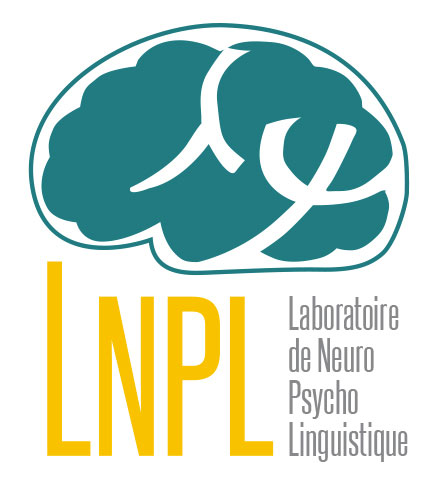-
Partager cette page
Soutenance de thèse: Noémie te Rietmolen "Neural signature of metrical stress processing in French"
Publié le 20 février 2019 – Mis à jour le 18 février 2022
le 27 février 2019
14h
MdR, salle D29Directeur/trice(s) de thèse :
Corine Astésano, MCF-HDR, URI Octogone-Lordat, Université Toulouse - Jean Jaurès
Simon Thorpe, DR, CerCo, Université Toulouse - Paul Sabatier
Jury :
Mireille Besson, DR, Laboratoire de Neurosciences Cognitives, AMU (Rapporteure)
Noël Nguyen, PR, Laboratoire Parole et Langage, AMU (Rapporteur)
Radouane El Yagoubi, MCF, CLLE-LTC, Université Toulouse - Jean Jaurès (Examinateur)
Hélène Lœvenbruck, CR, Lab. de Psychologie et NeuroCognition, Université Grenoble-Alpes (Examinatrice)
Maren Schmidt-Kassow, Assistant Prof., Institute of Medical Psychology, Frankfurt (Examinatrice)
Abstract:
The current dissertation presents an ERP-investigation of metrical stress processing in French. Indeed, while metrical stress is well known to play an invaluable role in speech comprehension, its functions in French speech processing are unclear. French is a language traditionally described as having no accent. This dissertation questions the traditional view and aligns to two metrical models on French accentuation, which propose stress to be encoded in cognitive templates underlying the abstract representation of the word.
In our interdisciplinary investigation of metrical stress processing in French, we take a functional, yet metrically rooted, approach. We use the method of Event-Related Potentials (ERP), which provides a highly sensitive and temporally precise measure, allowing us to determine whether there is metrical stress in French, and to what extent metrical stress aids the listener during speech processing. We will show that metrical stress facilitates processing throughout comprehension in French, and we will argue for metrical stress, as well as the domain of the word, to be given a more prominent place in the descriptions of French prosody.
Résumé :
Cette thèse présente une étude ERP du traitement de l'accent métrique en français. En effet, l'accentuation métrique joue un rôle important dans la compréhension des langues comme l'anglais et le néérlandais, mais son rôle dans le traitement du français n'est pas encore bien connu. Selon la vision traditionelle, le français est une langue sans accent. Cette thèse remet en question ce postulat et s'aligne sur deux modèles métriques d'accentuation du français, proposant que l'accent est encodé au niveau des patrons cognitifs sous-jacents.
Dans notre étude interdisciplinaire sur le traitement des contraintes métriques en français, nous adoptons une approche fonctionnelle. Nous utilisons la méthode des potentiels évoqués (ERP), qui nous fournit une mesure extrêmement sensible et précise. Cela nous permet de déterminer s’il existe un accent métrique en français et nous permet également de savoir dans quelle mesure l'accent métrique aide l’auditeur dans la comprehension de la parole. Nous montrerons que l'accent métrique facilite le traitement de la parole en français.

